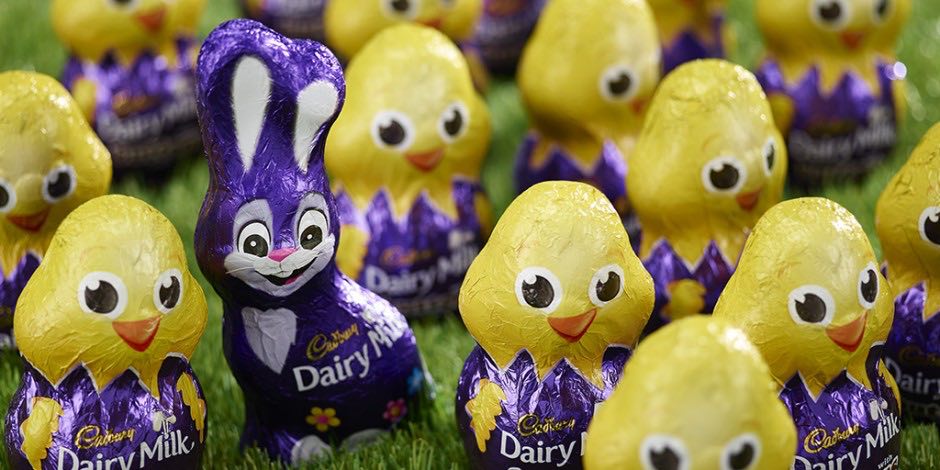
Cadbury eggs, Chewit and Squashies adverts banned under rules to protect children.
Cadbury, Chewits and Swizzels are the first three brands to fall foul of new rules that prohibit advertisers from marketing products that are high in fat, sugar or salt (HFSS) to children.
Last year, the Advertising Standards Authority brought online guidelines in line with broadcast media with the introduction of a new policy that prevented junk food ads from appearing in media where under-16s make up 25% or more of the audience.
This includes print, posters, cinema, online, apps and on social media.
Guy Parker, chief executive of the ASA, said he wanted the first rulings to show the regulator was enforcing the crackdown “rigorously”, adding that advertisers must understand where the watchdog was “drawing the line” on marketing sugary and salty products to children.
‘Significant appeal to kids’
Cadbury came under fire for marketing a storybook online called ‘The Tale of the Great Easter Bunny’, which featured children hunting for eggs, and an activity pack dubbed ‘Eggciting Activities’. The promotion was part of a collaboration with The National Trust for Scotland.
The regulator decided both were skewed towards kids.
The Mondelez-owned brand has said it was “disappointed” that the ASA felt the two downloadable assets were targeted at under-16s after a complaint was lodged by The Obesity Health Alliance.
“We will be taking the insights and views provided by the ASA as part of this ruling and applying those learnings to our future content so we can continue to build upon our long-standing commitment to not market directly to children under the age of 16,” a spokesperson for the chocolate giant added.
Cadbury escaped a further ban regarding Easter-themed content on its website.
Chewits, meanwhile, had four Facebook posts starring its mascot ‘Chewie the Chewitsaurus’ in a number of campaigns.
The theme of the first post was ‘celebration of GCSE results with Chewie’; one focused on going ‘back to school’; another was designed to celebrate Roald Dahl Day with Chewits treats; and the final update was about marking International School Libraries Month.
Thirdly, an ‘advergame’ app called Squashies World, where players were asked to match pairs of Squashies by flicking them towards each other, was also banned.
The app’s homepage featured images of three Squashies products and users who selected the ‘playtime’ opened an animation featuring cartoon images of anthropomorphised sweets.
Swizzels protested that it required a date of birth to be entered for the app to be used, but the ASA said it still had “significant appeal” to children and the firm hadn’t demonstrated that kids under 16 didn’t make up more than 25% of the audience, hence it was not appropriately targeted.
Ads for Walkers crisps and Nutella were also investigated as part of the clampdown, but both brand escaped bans.
Part of a wider shift
The rulings give some flavour of what the ASA will and won’t tolerate when it comes to HFSS advertising and follow on from the regulator saying in April that it was to review these new junk food rules to make sure they were “effective”.
In addition, the watchdog has issued a call for evidence around the impact HFSS food and drink TV ads have on children.
Today’s crackdown also comes amid separate UK government talks on the potential ban of junk food advertising on TV before the 9pm watershed.
Ofcom has had a blanket ban in place on junk food ads around children’s TV programming for 10 years, but the government has recently suggested that these rules could be taken one step further and enshrined in law.
While UK lawmakers have previously opted not to police HFSS TV ads further, amid pressure from organisations like Cancer Research, they’ve now kicked off consultations on introducing new TV and online advertising restrictions “to prevent children from being targeted by these unhealthy products”. The goal is also to “incentivise companies to reduce the sugar and calories in the products they sell.”
As part of a range of new measures to halve the number of obese children by 2030, Westminster has already enforced a fizzy drinks tax and a voluntary scheme for the food industry to reduce the volume of sugar in food and drink.













